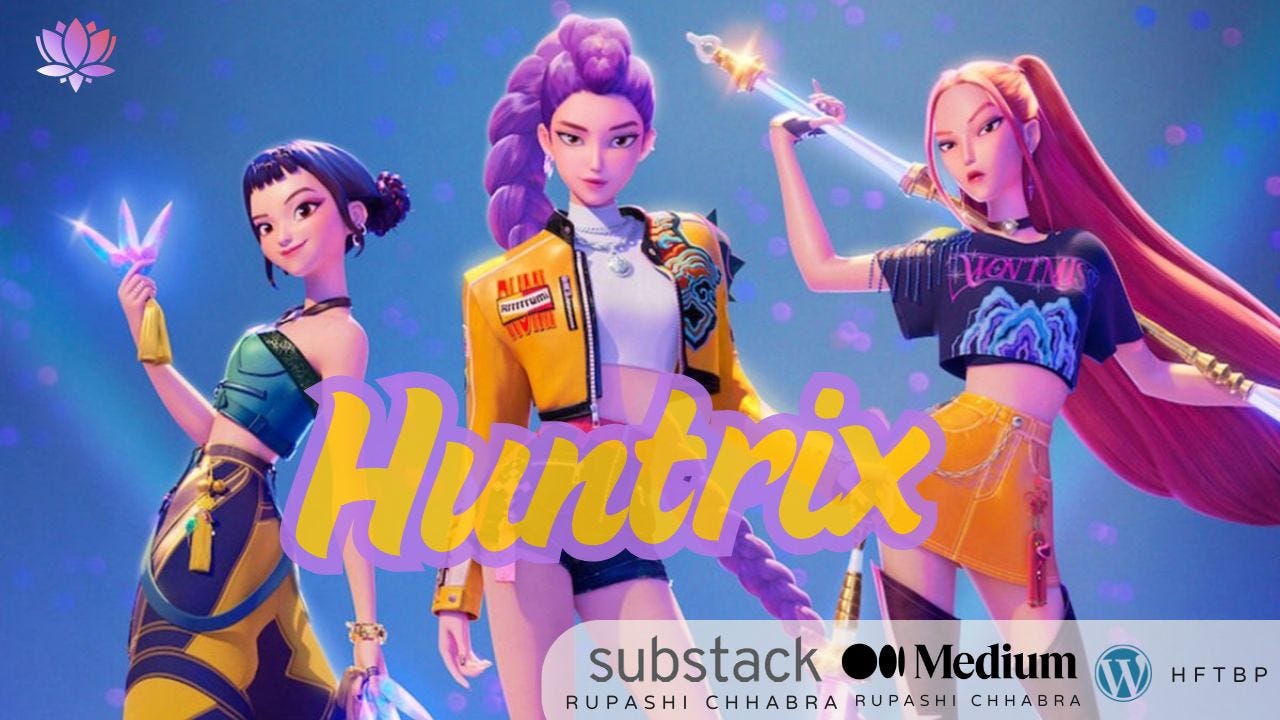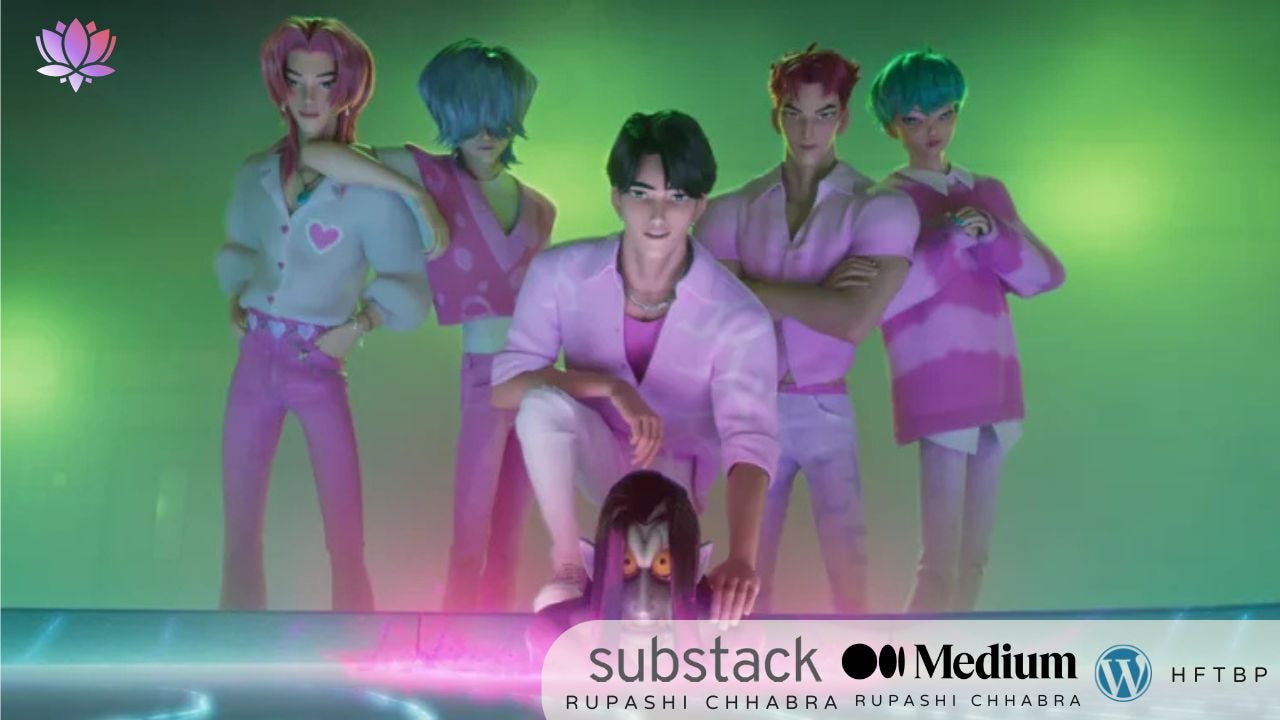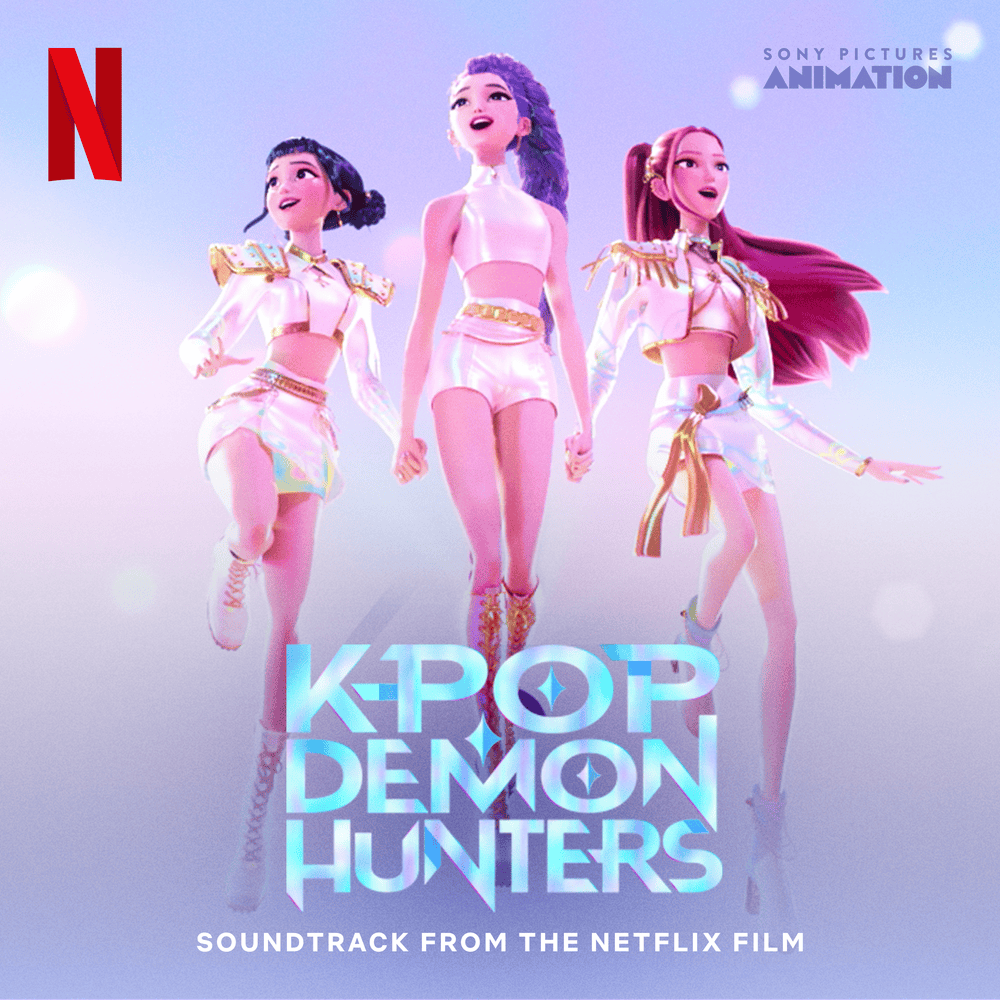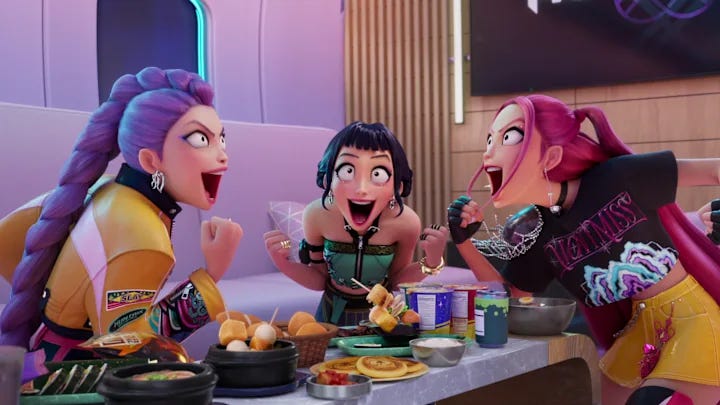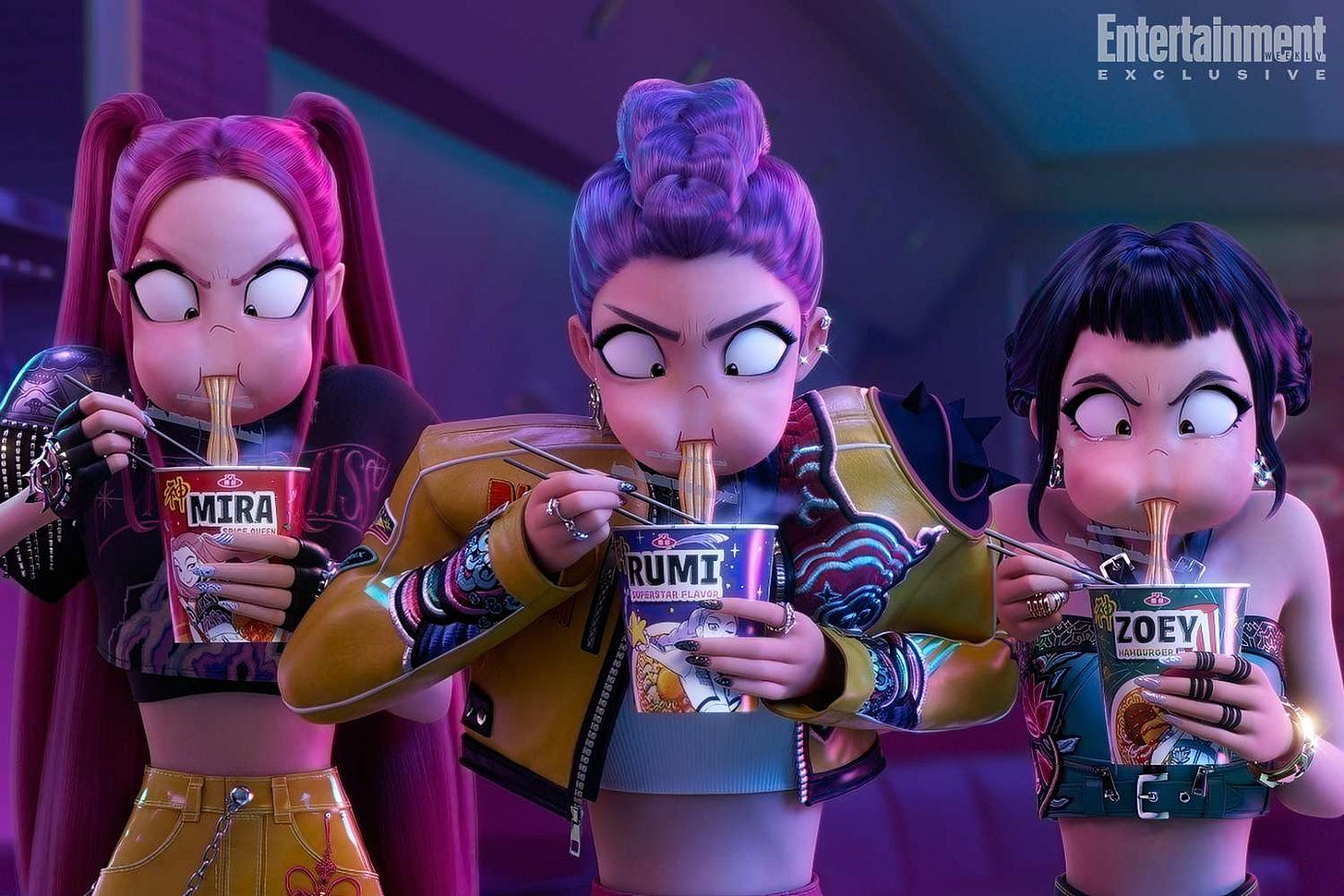Into the world of Electrifying K-Pop Demon Hunters
Netflix's K-Pop Demon Hunters analysed, dissected, and served on a platter
K-Pop's Demonic Symphony: A "Critic" & Fan's Unfiltered Take on Netflix's New Obsession
As a seasoned music critic, an unapologetic K-pop stan, and an entertainment journalist constantly sifting through the latest cultural phenomena, I approached Netflix's new K-pop demon hunter series with a potent mocktail of anticipation and apprehension. The premise alone—K-pop idols battling supernatural entities—is either genius or pure fan service chaos. After watching, I can confidently say it’s a fascinating, if sometimes uneven, blend of both, leaving me with a lot to unpack for both casual viewers and dedicated fans.
From a music critic’s standpoint, the series brilliantly integrates original K-pop tracks and performances, showcasing the genre's dynamic range. The production quality of the music scenes is surprisingly high, often feeling like genuine music video releases rather than mere background noise. However, the narrative sometimes sacrifices genuine character development for flashy musical numbers, which, while entertaining, can leave the plot feeling a bit thin. The integration of K-pop choreography into demon-slaying sequences is visually striking and undoubtedly caters to a specific audience, but it occasionally strains credulity even within the fantastical framework.
Now, as a K-pop fan, this show is a dream come true, yet simultaneously a source of endless nitpicks. Seeing idols—even fictional ones—wielding powers and protecting humanity is the ultimate fantasy fulfillment. The show understands the visual language and emotional pull of K-pop, from the intricate styling to the synchronized movements. However, I found myself wishing for more nuanced portrayals of the idol experience beyond the glamor and the battles. The series has incredible potential to explore the pressures, rivalries, and friendships within a K-pop group, which it only scratches the surface of. Despite these minor qualms, the sheer audacity and fan-friendly approach make it a must-watch for anyone deep into the Hallyu wave.
Now, for the pop-culture nerds, Netflix's "K-Pop Demon Hunters" is an animated action musical that delivers a visually stimulating experience, blending the vibrant world of K-pop with demon-slaying action. The film, directed by Maggie Kang and Chris Appelhans, is produced by Sony Pictures Animation and was released on Netflix on June 20, 2025 (today).
It follows Huntrix, a K-pop girl group whose members secretly work as demon hunters to protect the world from evil forces led by the demon king Gwi-Ma.
Plot Summary and Premise
"K-Pop Demon Hunters" centers on the K-pop trio Huntrix, composed of Rumi, Mira, and Zoey, who balance their lives as global music stars with their secret mission to eradicate soul-sucking demons.
Their ultimate goal is to complete the Golden Honmoon, a protective barrier designed to permanently keep evil forces at bay. The group faces their toughest challenge yet when a rival demon boy band, the Saja Boys, led by the human-turned-demon Jinu, emerges to poach their fans and undermine their efforts.
The film's premise is described as charming, funny, and artfully punchy, despite its somewhat silly nature. It draws parallels to "Sailor Moon à la Buffy the Vampire Slayer" or "The Powerpuff Girls meets Power Rangers," focusing on inheriting a generational mantle of defending humanity while balancing everyday life responsibilities.
Characters and Voice Cast
The main trio of Huntrix includes
Rumi (Arden Cho): The laser-focused lead vocalist and leader of Huntrix, who is confident, ambitious, and hardworking but secretly fears others discovering her "big secret"” Her journey to superstardom takes an unexpected turn when she loses her voice, forcing her to confront her identity beyond her talents as a singer and demon hunter.
Mira (May Hong): The aloof lead dancer and choreographer, portrayed as rebellious, spirited, and initially distrusting, but fiercely loyal once she trusts someone.
Zoey (Ji-young Yoo): The bubbly lyricist and resident rapper, who is also the youngest member of the group and eager to please.
The antagonistic forces include
Gwi-Ma (Lee Byung-hun): The demon king hellbent on feasting on humanity and asserting his dominion, who has been reduced to massive fangs and lips after years of being cut off from the human realm.
Jinu (Ahn Hyo-seop): The leader of the Saja Boys, a human-turned-demon who sold his soul to Gwi-Ma for musical talents and fame.
Other notable voice cast members include Yunjin Kim as Celine, Joel Kim Booster, Liza Koshy, and Daniel Dae Kim as Healer Han.
Animation and Visual Style
Sony Pictures Animation continues to push boundaries with its visual style in "K-Pop Demon Hunters," drawing comparisons to the "Spider-Verse" franchise for its inventive blend of animation styles, textures, and tones. The film incorporates a sincere and endearing animation style that defies convention, with characters moving with jagged frame rates and featuring expressive, bold character designs with off-model gags and chibi-like moments.
There's a notable anime homage, with features like vein pops on foreheads and facial features collapsing into simple lines in comedic moments. The animation shines particularly in its fight sequences, which feature flashy choreography, and the K-pop music videos, often colliding the two for visually stunning results.
Music and Choreography
The film leans heavily on musical numbers, featuring original songs penned by a mix of popular Western artists and K-pop mainstays. Huntrix's vocals are provided by EJAE, Audrey Nuna, and Rei Ami, while Jinu's singing is by Andrew Choi.
The soundtrack's lead single, "Takedown," is performed by Jeongyeon, Jihyo, and Chaeyoung of Twice. The fight choreography often feels like an extension of the characters' dance moves, and concert sequences appear pulled from real K-pop stages. The film showcases catchy tracks that sound like they could be from contemporary K-pop albums.
Reactions and Themes
The Korean food showcased in the film is a delicious addition. From tofu jiggae (stew), ramyeon, rice cakes, and Korean hoteok, there are a whole lot of tasty dishes on the K-pop girl group's after- and before-performance recharge fuel.
Critics have largely praised the film's visual ingenuity and engaging action sequences. It has been called a "terrific directorial debut" for Maggie Kang and a "relentless celebration of both the music that inspired it and the medium of animation itself.”
The film is noted for its comedic chops and dramatic depth, tackling serious subject matter without taking itself too seriously. It aims for a younger audience than the "Spider-Verse" films, resulting in a less complex narrative but abundant ambition in its visuals.
Themes of strength through adversity, the power of living one's truth, and accepting oneself are explored. Some critics noted that while the premise of humanizing demons is interesting, the message about accepting differences feels blurry and lacks emotional resonance. The ending has been described as "overly convenient" and "neatly tied up," potentially losing some depth.
Overall, "K-Pop Demon Hunters" is considered a visually interesting and entertaining film that embraces its over-the-top premise and delivers a powerful message of acceptance.
For an in-depth short-form visual review, be sure to follow me on Instagram and YouTube.





